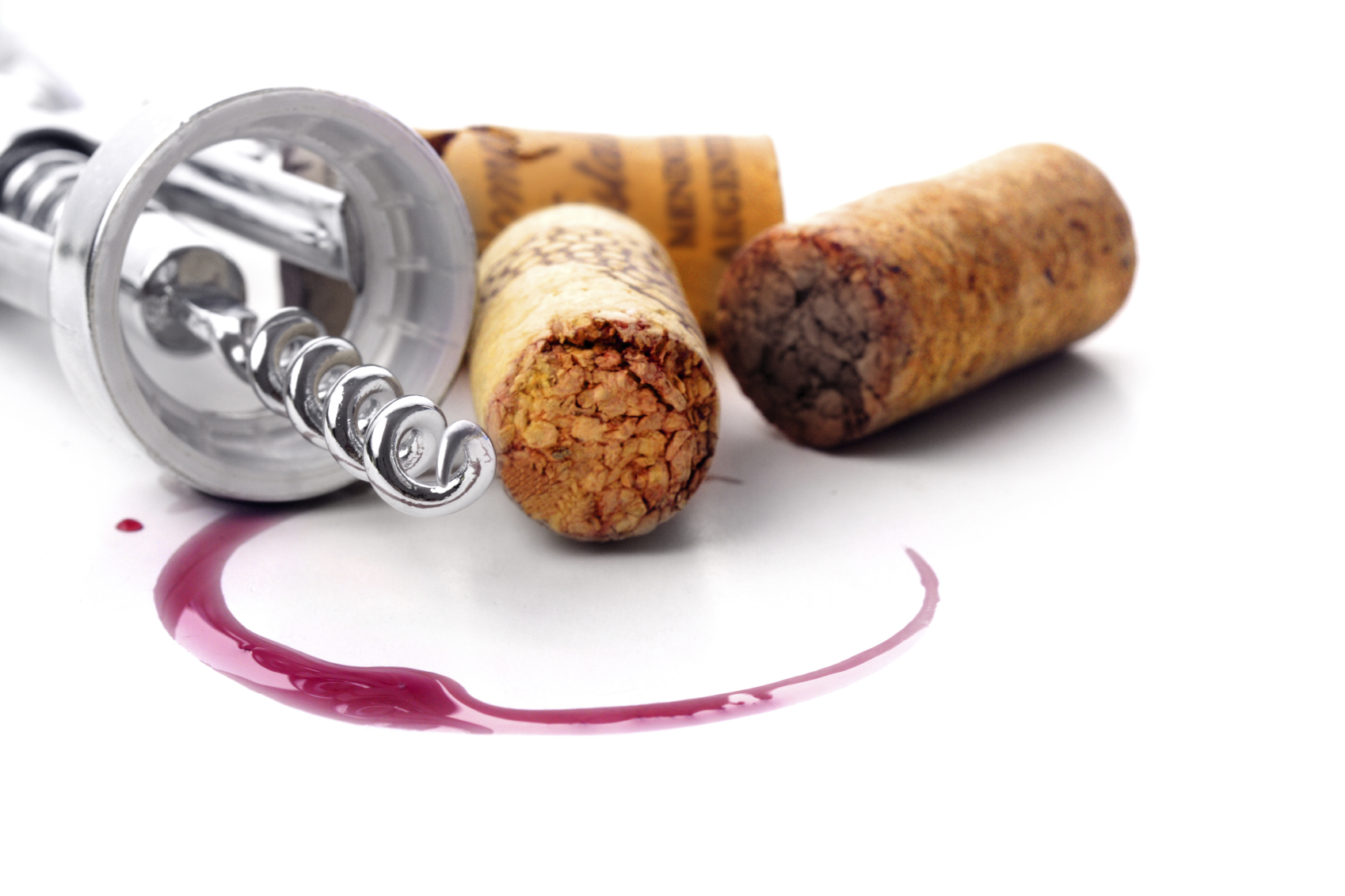A Silicon Valley tech exec invests $1.2 million in a Napa wine company but pays with his life
What was racing through the mind of Emad Tawfilis on March 16, 2015 as he ran for his life through the Napa Valley vineyard in which he had invested more than $1.2 million? Shot and bleeding, Tawfilis frantically dialed 911 to report his estranged business partner was pursuing him in a Toyota SUV, gunning the engine as he moved in for the kill.
Sheer terror, of course.
But Tawfilis must have also had at least a fleeting sense of ‘How could this be happening?’ and a desperate hope that it was all a nightmare from which he would soon awake. It was not to be. As Napa County Sheriff’s deputies rushed to save him, the last thing Tawfilis saw in this life was wine entrepreneur Robert Dahl towering over him to deliver the coup de grace.
The saga of Dahl’s murder of Tawfilis and his suicide following a police chase into the hills of wine country made international headlines. Illuminated was the dark underbelly of California’s elite vintners known more for their luxurious lifestyles and $1,000 bottles of vino than their cutthroat business deals.
But the scandalous plot line obscured a more pressing question: How did the only man who had invested seven figures in Dahl’s dream of launching a fine California winery end up getting mercilessly shot down? And perhaps beyond the obvious-that Dahl’s mental state had spiraled into a homicidal rage-the answer is an uncomfortable truth: Tawfilis didn’t really know with whom he was doing business.
According to The New York Times, Tawfilis, a 48-year-old accountant who was described as an easygoing and level headed businessman, met the burly, red-faced Dahl, 47, in 2011. Dahl, a licensed contractor, had recently moved his family from Minnesota to a San Francisco suburb and was pitching investors a company he called Patio Wine Company.
Dahl, an experienced, if shady, hand at raising capital behind ideas that became mercurial past the presentation, smelled the aroma of opportunity from Tawfilis.
“[Dahl] was real good at getting into deals,” Steven Lodge, an attorney who had sued Dahl on behalf of investors in Minnesota years earlier, told The Times. “And then exiting in a ball of fire.”
Tawfilis was an established financial expert in the Bay Area, working as a controller for Brooktrout, an office technology company. And Tawfilis liked Dahl’s pitch. He had apparently been seeking entrée into the inner-circle of Napa’s wine culture and connected with Dahl’s message of the good life. But had Tawfilis dug a little deeper into the person he was entrusting with his dreams and dollars, he might have thought twice about the deal.
One Minneapolis newspaper called Dahl’s history there “a scorched-earth track record of botched business deals and legal issues.”
In fact Dahl used one of those Minnesota deals for credibility when he arrived in the Golden State. He would apparently tell people he had sold a company called Duraban International in Minneapolis and moved west with his new fortune to try his magic in Napa Valley.
The truth? The sale of Duraban, a construction products company, never happened. Apparently the deal fell apart when investors determined that Dahl’s proprietary claims about the company’s anti-mold products were patently false, according to media reports.
Dahl’s background of busted deals in Minnesota resulted in dozens of civil judgments and liens totaling hundreds of thousands of dollars throughout the 2000s as well as an eviction in 2005. Virtually none of the civil judgments levied against Dahl were reported satisfied, even as Dahl was living the high life in California and leasing a home in an upscale Fairfield neighborhood purportedly for $6,000 a month.
More disturbing, perhaps, was that in 1991 Dahl pleaded guilty to felony grand theft in Hennepin County Court. He had a 15-month jail sentence reduced to three months in a work program. Along with 10 years of probation, Dahl was ordered to undergo a psychiatric evaluation by the court.

Robert Dahl at work
“He was always talking about the wine lifestyle, drink wine every night and eat great dinners.
He didn’t know anything about wine.”
– James Koller, owner of the property where Dahl set up his winery
Tawfilis may not have sensed an impending explosion, but when he infused the first several hundred thousand dollars in Patio Wine Company he had lit a fuse inside of Dahl. And just months after his first investment, Tawfilis and Dahl were at odds over the terms of their deal, according to media reports.
In the litigation that followed it became clear that Tawfilis had not conducted basic due diligence on Patio Wine that he would have demanded professionally.
Yet amazingly, when it came to make the second installment, Tawfilis not only went all in with Dahl, but he did so under the conditions his new business partner demanded: cash on the wine barrel head. In 2013, in a scene made for Hollywood, Tawfilis handed Dahl a duffel bag with at least $800,000 in cash. Dahl explained to Tawfilis that he needed the funds in cash in order to secure a significant discount on bulk wine purchases. Tawfilis thought he had ‘secured’ his investment by controlling 90% of the company’s stock and putting a lien on the company’s wine-making equipment. He even brought an accountant to document the hand off and perhaps to convince himself that his decision to double down on an untrustworthy business partner was somehow a wise, thought out investment.
In a revealing moment, though, Dahl took a selfie with the bag of cash and emailed it to friends. As if even he couldn’t believe his good fortune.
But as Tawfilis would soon discover, the winery he thought he was buying was already defunct and dismantled. Dahl had allegedly transferred the assets that secured Tawfilis’s investment into a new, separate operation that was to produce both wine and craft beers.
Tawfilis had little recourse but to file a breach of contract and fraud lawsuit against Dahl in an effort to recover what he could. By all accounts, Tawfilis pursued his former partner tenaciously in court eventually winning a judgment against Dahl for all of his equipment.
And he wasn’t the only person fighting with Dahl. Greg Knittel, a Napa contractor and Patio Wine investor, severed all ties with Dahl in summer 2014 after his erratic behavior and refusal to show Knittel the books gave him an ominous feeling. Another Dahl business associate, Steve Burch, told the Napa Valley Register that he stopped working for Dahl because of his explosive temper.
But Tawfilis’ crusade for justice would prove pyrrhic. Dahl told Tawfilis that he wanted to meet and negotiate a final settlement. Tawfilis’s attorney warned him not to meet with Dahl in person. And he was right. There were no legitimate documents at the meeting, only a silencer-tipped gun, and as police would later discover, more than 1,000 rounds of ammunition in Dahl’s SUV.
In the aftermath of this tragedy the question of why a financial professional like Tawfilis, steeped in the methodological practice of accounting, threw caution to the wind and backed a guy like Dahl.
One clue was an eight-page ‘contract’ discovered in Dahl’s desk shortly after the murder. Apparently, Dahl expected Tawfilis to sign a statement in which he admitted to falsely accusing Dahl of fraud and acknowledging that those who testified against Dahl in the civil lawsuit had lied.
“It was stunning and disturbing to see this document,” Tawfilis’ attorney David Wiseblood told the press. “Perhaps it sheds a clear light on Mr. Dahl’s intentions that fateful day.”
Had Tawfilis conducted proper due diligence on Dahl before he invested in Patio Wine he might have discovered that Dahl was a charlatan, not worthy of investment. He would have also learned that Dahl was a man that, as one of his former associates told a reporter: “Had no long term plans, only short term wants.”
And for an investor, that’s a most bitter vintage indeed.

